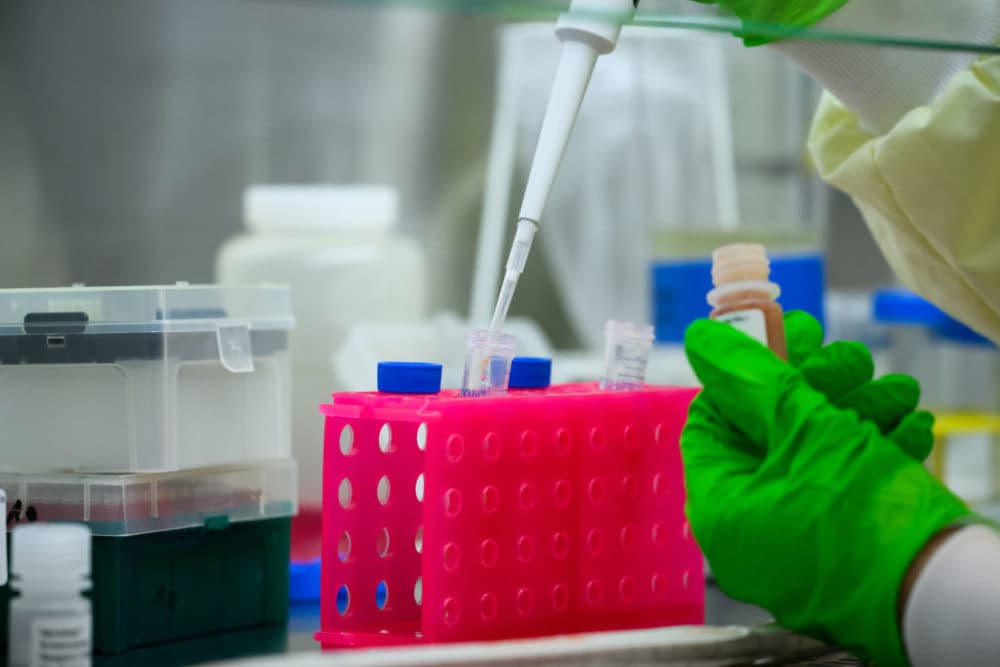Advertisement
Boston's Morning Newsletter
Boston releases its 1st city-specific COVID wastewater report

Editor's Note: This is an excerpt from WBUR's daily morning newsletter, WBUR Today. If you like what you read and want it in your inbox, sign up here.
Go catch a couple snowflakes if you still can before the rain moves in today. (I wish I could say the forecast was at least good news for the ski slopes, but it looks like most of New England is in for a wet and balmy Friday.) Click here and here for a rough visualization of when and where the snow changes over to rain across the region.
Boston’s school bus system isn’t just notoriously unreliable. It’s also really expensive. And a new report compiled by an outside nonprofit group hired to help fix the district’s school bus problem spells out the “frustrating tangle of causes” for both problems. While a lack of drivers and competition in the industry has fueled recent concerns, WBUR’s Max Larkin reports that some challenges are baked into the nature of Boston Public Schools. Let’s break it down:
- BPS’s bus fleet serves 21,500 students and over 200 public, charter, parochial and private schools. Because of the city’s school choice system, many students attend schools far from their homes — meaning more buses driving more miles each day. The report didn’t take issue with the school choice policy, but noted that it’s not exactly a recipe for efficiency.
- Making matters worse: The report found that buses have to deal with dozens of different school start times: 24 different morning bell times, 20 midday bell times and 29 afternoon bell times.
- For starters: The report recommended streamlining BPS school start times and coordinating them with local private schools. However, a previous effort in 2017 to implement district-wide start times stalled amid backlash from some parents.
- Progress? As part of the state’s systemic improvement plan with BPS, the district has set a goal of a 95% on-time arrival rate for school buses. According to Superintendent Mary Skipper, they’re at 91% since the holiday break and had a 93% on-time rate in December. Still, Skipper noted they have “a long way to go” to address the core issues identified by the report.
Boston health officials have published their first city-specific COVID wastewater report, as part of their new wastewater surveillance program that uses samples from 11 manholes across the city. The program gives officials a closer look at local COVID trends than the MWRA’s regional monitoring system, as well as detailed neighborhood data. (The new report shows wastewater data through Jan. 4.)
- Zoom out a bit: The MWRA’s more recent wastewater (based on samples submitted through Jan. 10) is showing a big drop in infections across the Boston area since the post-holiday spike.
The city of Cambridge is holding a community meeting tonight to discuss last week’s fatal police shooting of 20-year-old Sayed Faisal. Police say Faisal charged at them with a machete-style knife, despite attempts to deescalate the situation. However, several hundred protesters gathered Monday outside Cambridge City Hall to express frustration with the response. They say Faisal — who was remembered as friendly and nonviolent — was having a mental health crisis.
- Tonight’s public meeting will run 6 p.m. to 8 p.m. at the Dr. Martin Luther King Jr. School on Putnam Avenue. Middlesex District Attorney Marian Ryan and several Cambridge officials will be there to discuss the shooting and answer questions.
Eight years after Eversource first proposed a controversial electrical substation on the banks of the Chelsea Creek in East Boston, construction has officially began on the $103 million project. WBUR’s Miriam Wasser reports that a few workers have arrived on the long-empty site, which will soon be filled with crews and vehicles.
- Eversource says construction will take two years, but isn’t expected to cause any electrical service disruptions for local residents.
- Click here for a rendering of what the substation will look like, as well as background on why the project has fueled such vehement opposition among East Boston residents and activists.
P.S.— The situation at Logan airport has mostly cleared up after yesterday’s FAA outage affected over 400 flights coming in or out of Boston. Still, if you’re flying today, MassPort suggests checking in with your airline before heading to the airport — just to be safe.
